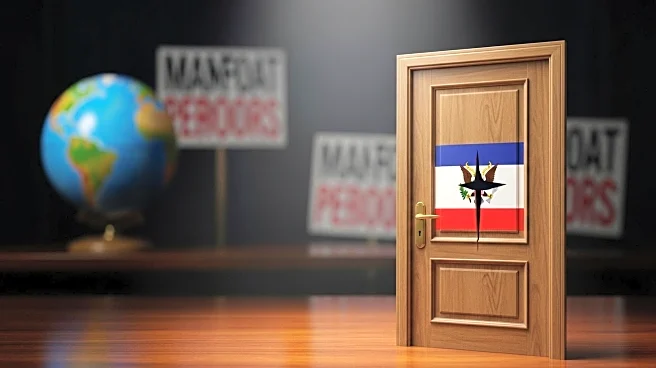What's Happening?
Colombia has expelled Israeli diplomats following Israel's interception of the Sumud flotilla bound for Gaza, which included Colombian citizens. This action is part of a broader international backlash, with protests erupting across Europe and beyond. Colombian President Gustavo Petro announced the expulsion and suspension of the free trade agreement with Israel, citing the arrest of Colombian nationals. The flotilla's interception has sparked widespread demonstrations in cities like Rome, Madrid, and Dublin, with various governments condemning Israel's actions. Turkey has launched a criminal investigation, and several countries have called for the release of detained activists.
Why It's Important?
The diplomatic fallout from the flotilla interception highlights the complex geopolitical tensions surrounding the Israeli-Palestinian conflict. Colombia's decision to expel Israeli diplomats signifies a significant diplomatic rift, potentially affecting bilateral relations and trade. The global protests reflect widespread international discontent with Israel's actions, which could influence public opinion and policy decisions in various countries. The situation underscores the challenges Israel faces in maintaining international support while addressing security concerns. The incident may also impact ongoing efforts to broker peace in the region, as countries like Turkey warn of potential repercussions.
What's Next?
The international community will likely continue to monitor the situation closely, with potential diplomatic engagements to address the fallout. Israel may face increased pressure to justify its actions and engage in dialogue with affected countries. The protests and diplomatic actions could lead to further scrutiny of Israel's policies and actions in Gaza. Countries involved in the flotilla may seek international legal avenues to address grievances, potentially involving international courts or organizations. The situation may also prompt discussions on humanitarian aid access to Gaza and the broader implications for regional stability.
Beyond the Headlines
The incident raises questions about the effectiveness of international law in addressing maritime disputes and humanitarian interventions. It also highlights the role of civil society and grassroots movements in shaping international discourse on human rights and conflict resolution. The global response to the flotilla interception may influence future diplomatic strategies and alliances, particularly in regions with significant Palestinian support. The situation underscores the importance of multilateral approaches to conflict resolution and the need for comprehensive peace initiatives.









